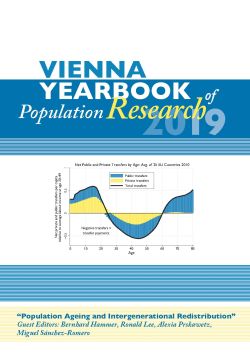
Vienna Yearbook of Population Research 2019, pp. 163-197, 2019/12/02
Special issue on Population ageing and intergenerational redistribution

Recent work based on the American Time Use Survey (2011–2013) provided estimates matrices of “who provides care to whom” by age and sex within care activities in the U.S. In this paper, we build on that line of research by evaluating the strength of race, ethnicity, and national origin as proxy indicators of cultural propensities to engage in informal care. Our results point to several key differences and similarities between groups based on their characteristics. For example, we find that compared to other groups, native-born African American men exhibit the lowest child care participation and transfer rates, whereas foreign-born Hispanics of any race have significantly higher rates of daily participation in child care. Moreover, we find that the propensity to provide adult care is largely dependent on socio-economic characteristics and household structure. However, our models indicate that neither race/ethnicity nor nativity are strong predictors of the observed differences when household composition and socio-economic factors are taken into account. Thus, we believe that more complex cultural factors are at play. As an illustrative example of the consequences of demographic change, we introduce the care support ratio (CSR), which is a measure of macro-level dependency for non-market transfers. The application of the CSR indicates that future informal care time deficits may result from the growing care needs of the ageing population.